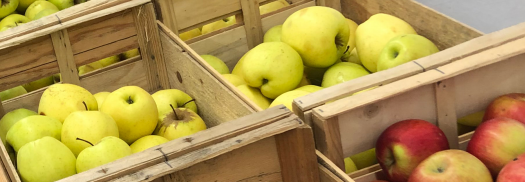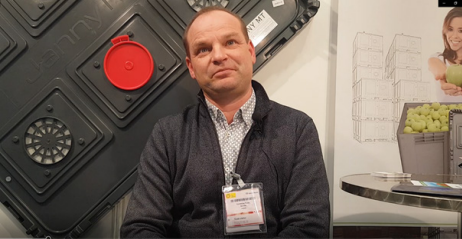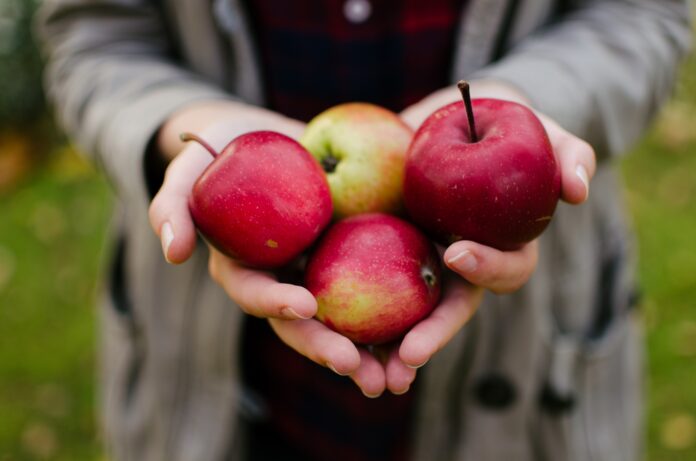Short food supply chains’ (SFSCs) market is popular. Households’ enthusiasm for this consumption mode does not seem to diminish and producers compete with ideas to market their fruit: on-farm selling, farmers’ markets, farmers’ shops, pick your own farms…
The fresh fruit section is an essential part of farmers’ shops: it represents on average between 7 and 8% of the total turnover of the stores. The potential is huge because consumers are currently looking for a superior quality local apple all year round. The market share of SFSCs tends towards an increase in the next years.
However, from March onwards, the quantity of apple varieties offered on shelves decreases and some farmers’ shops are no longer able to offer apples to their customers from May onwards. A challenge for the industry is therefore to offer local and quality apples to consumers from March to June in order to cover a constant consumer demand.
Depending on the earliness of the fruit, producers have apples for sale, on average, until March with a classic cold storage. The preservation in JANNY MT Controlled Atmosphere boxes can extend the offer in quality apples until June, allowing to maximize production valorization, at more profitable prices.

JANNY MT technology works by lowering the quantity of O2 in the modules, which allows for optimal and long-lasting preservation of the fruit. Moreover, the process maintains an adequate relative humidity which avoids a product weight loss (<1%): for products sold by weight, the economic gain is obvious! If we consider that in a classic cold room, the weight loss can reach 10%, for a product sold at 1,80€, JANNY MT modules allow producers to gain up to 18 cts/kg sold. The preservation of fruits is possible thanks to this natural chemical free process.
The increasing importance of SFSCs can occur by implementing JANNY MT modules which allow boosting of apple sales, and this, during periods which are usually slow.
Consumers generally want to have a choice: this is why farmers’ shops offer, on average, 8 to 10 varieties a year on their shelves. However, from March onwards, the number of varieties available to the customer decreases until the stock shortage, which happens quickly for shops without controlled atmosphere conservation systems. JANNY MT modules make it possible to offer a range of 7 to 8 varieties until June, that therefore meets the demand. The depth of the range is a key to success in the SFSCs because it develops the attractiveness of local food systems for consumers.
In farmers’ stores, adaptability and flexibility are key words. Indeed, the supply must be constant and regular to satisfy customers. The need for flexibility in destocking is specific to SFSCs, and JANNY MT modules make it possible to meet this specific requirement. The JANNY MT modules allow the farmers’ shops to enjoy total flexibility in supplying their stalls and to satisfy the most demanding customers.
One of the major challenges of the apple industry in SFSCs is to create an attractive apple section until the presence of summer fruit, while offering the consumer a wide choice of varieties. The width of range and quality are keys to the reputation of the farmers’ stores. March to June is an interesting period to develop and can allow SFSCs to boost their turnover. Janny MT modules are a strategic tool for achieving these objectives.





